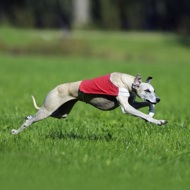
Almost 50 dogs seized in Operation Galileo
A police operation to tackle hare coursing has made ‘positive progress’, according to Lincolnshire Police.
Operation Galileo is Lincolnshire Police’s response to hare coursing and its link to threats, intimidation, damage and road safety. According to the force, some 2000 incidents of hare coursing were reported by local communities during the last season.
In December, there were 324 incidents of hare coursing, compared to 413 in December 2016. In the four months from September to December, there have been a total of 1014, compared to 1216 in the same period in 2016.
Deputy chief constable Craig Naylor said: “This is positive progress. We will continue to work with our partners including the Crown Prosecution Service and RSPCA to ensure that we explore all opportunities for enforcement.
“We work with the NFU and CLA to seek feedback on our activity and develop our tactics. We can only succeed with the continued help and information from our rural communities."
Chief superintendent Mark Housley added: "I believe that our policy of seizing dogs is the most effective deterrent for hare coursers. So far this season we have seized 49 dogs.
“We have heard from other forces that hare coursers they encounter tell them they will not visit Lincolnshire because we seize dogs. This policy will continue."
Lincolnshire Police said that seized dogs are cared for in approved kennels and that they apply for the court for forfeiture on conviction.



 RCVS Knowledge has called on vet practices to audit their post-operative neutering outcomes.
RCVS Knowledge has called on vet practices to audit their post-operative neutering outcomes.